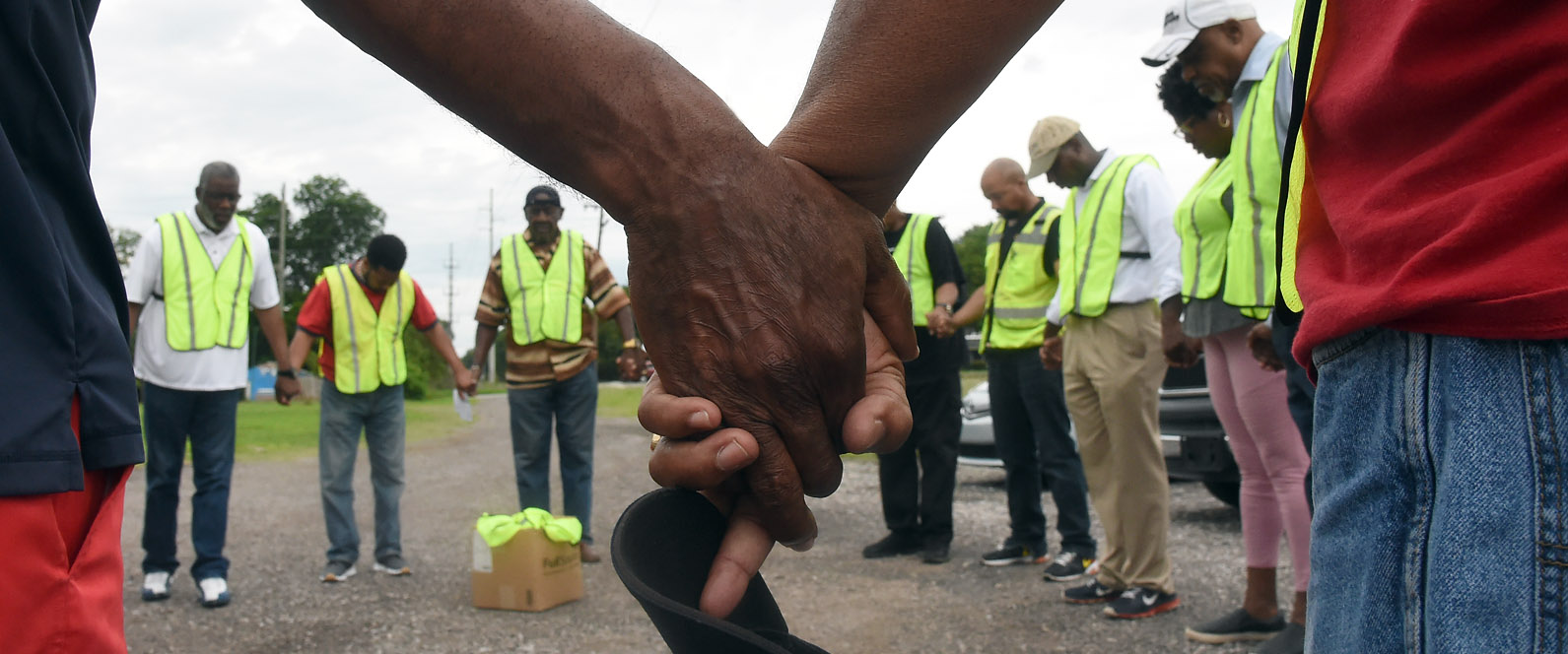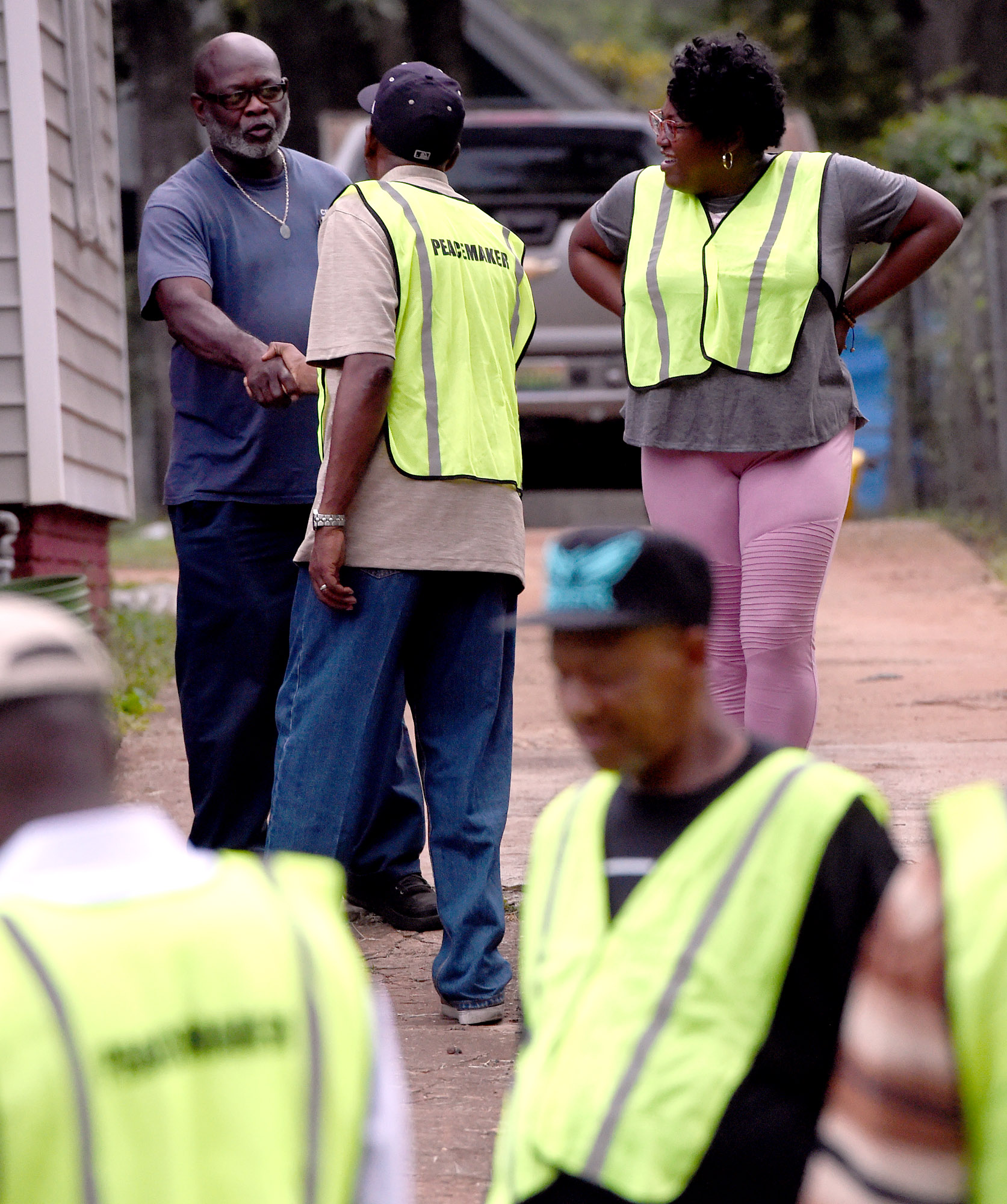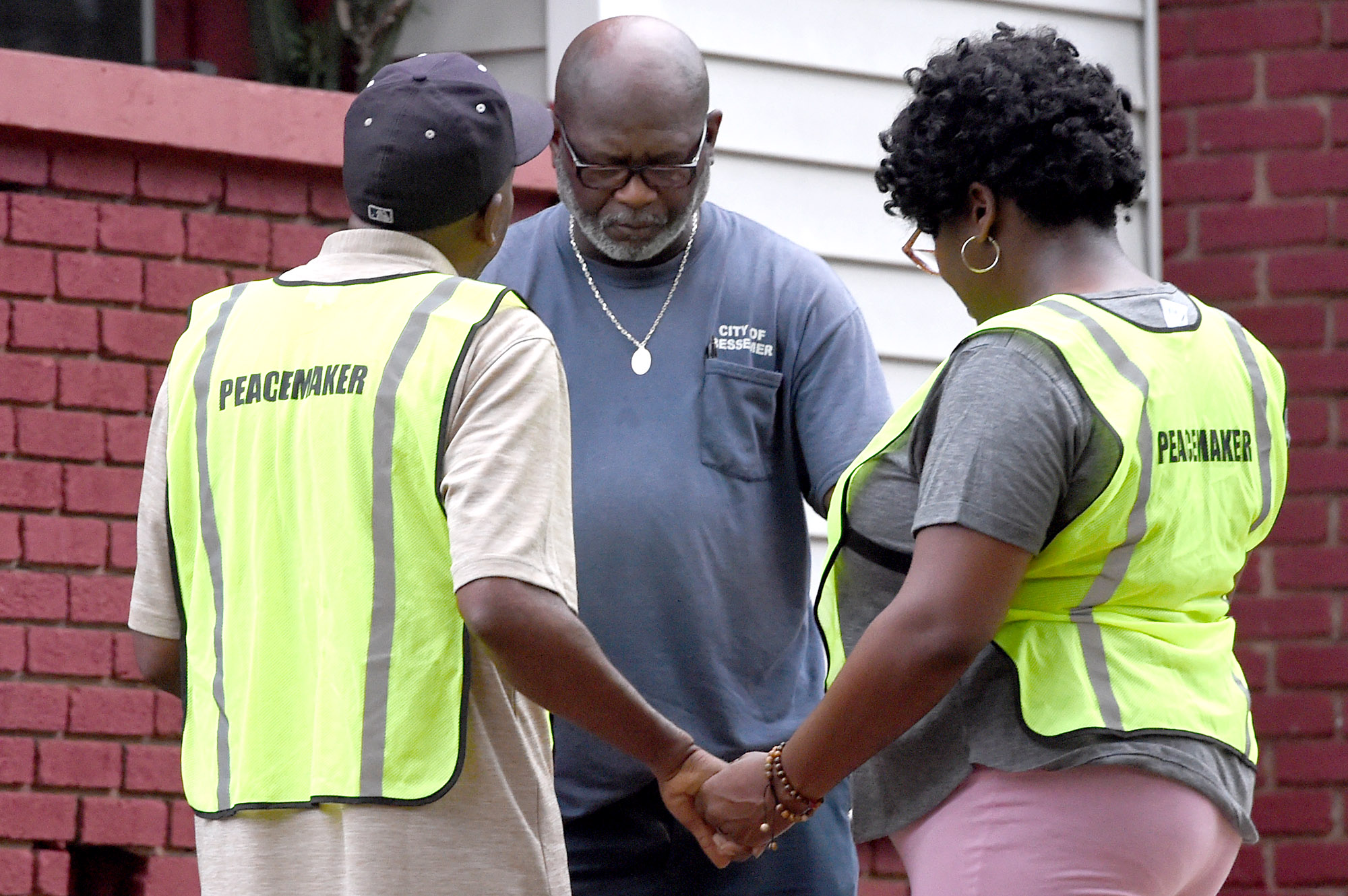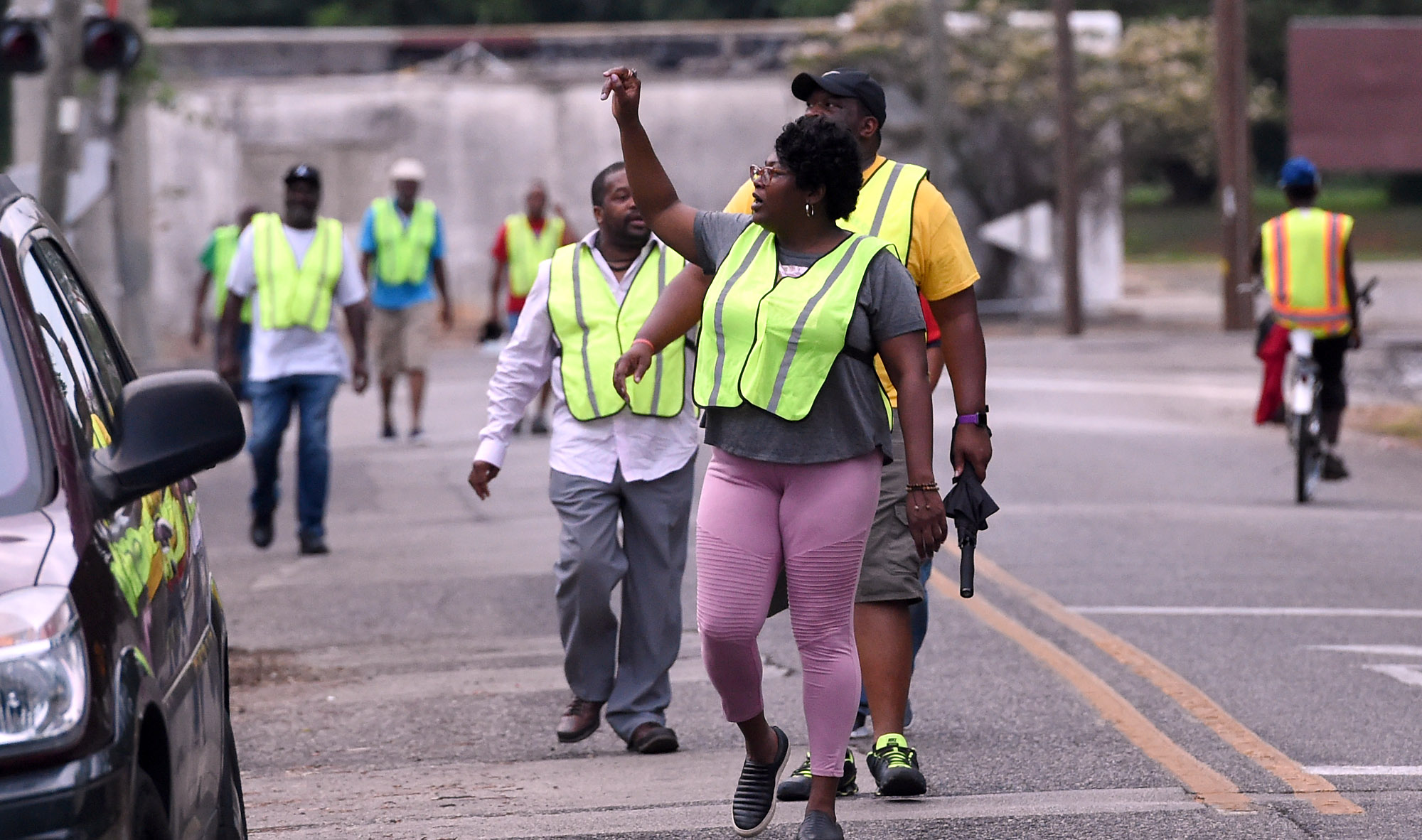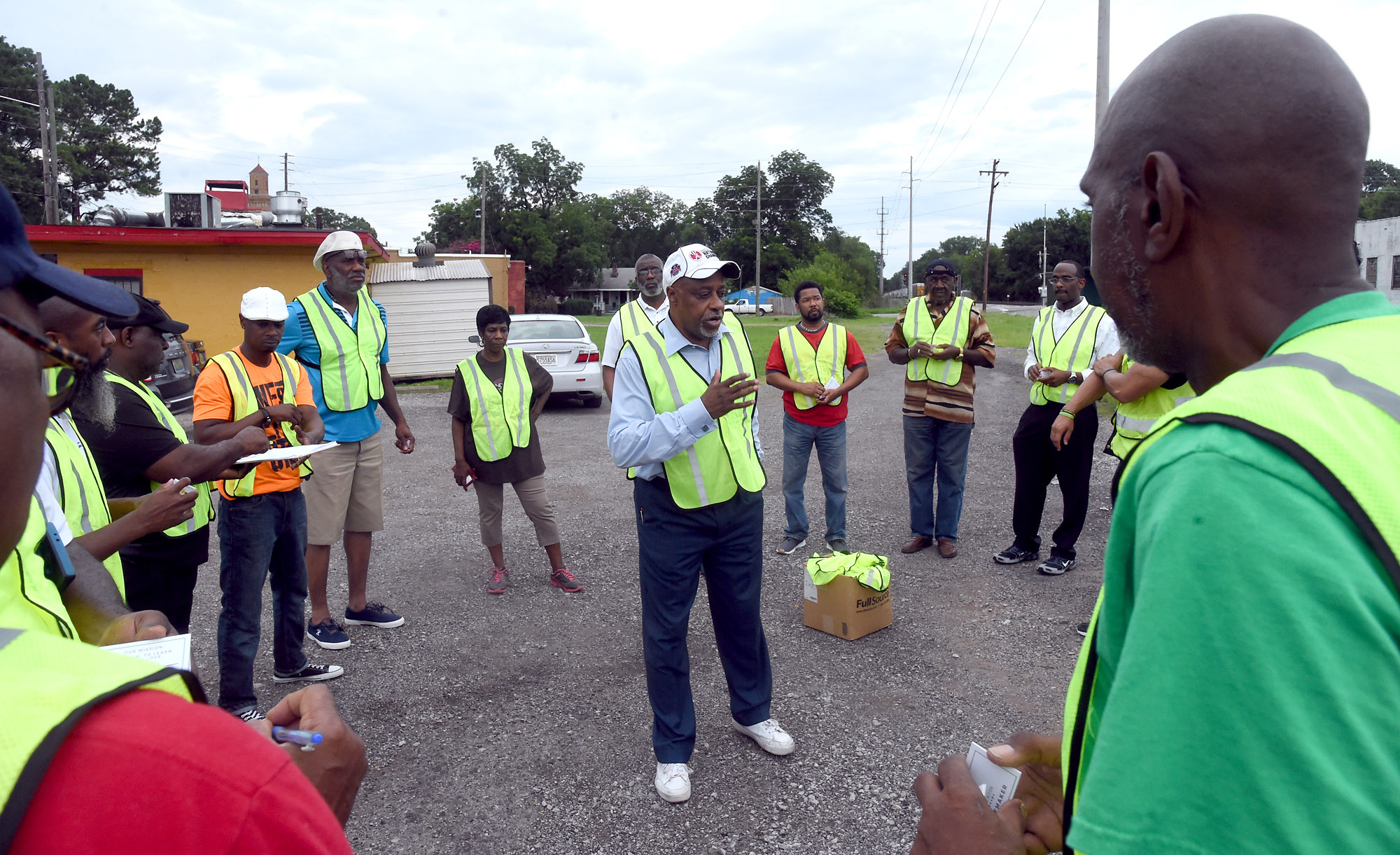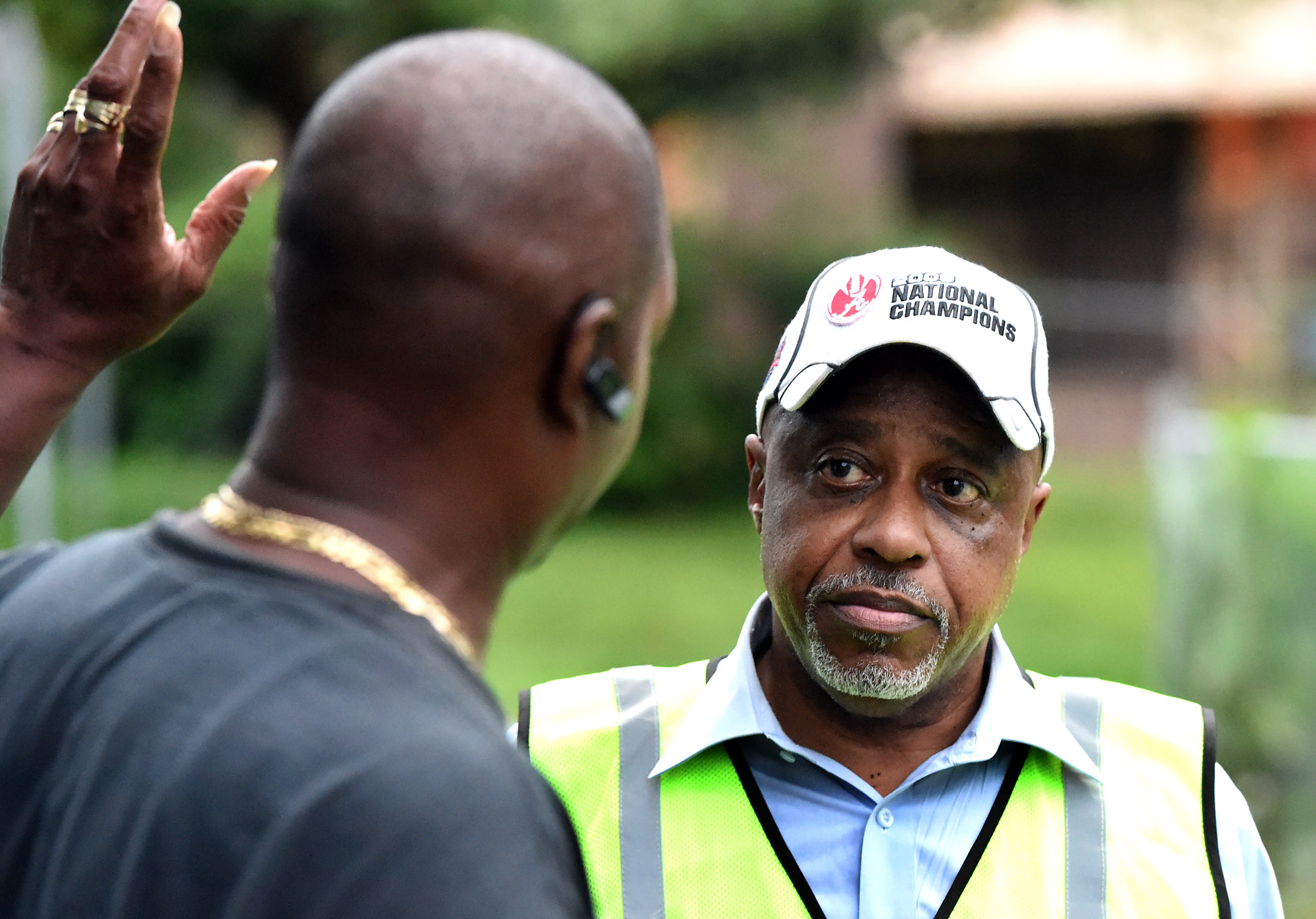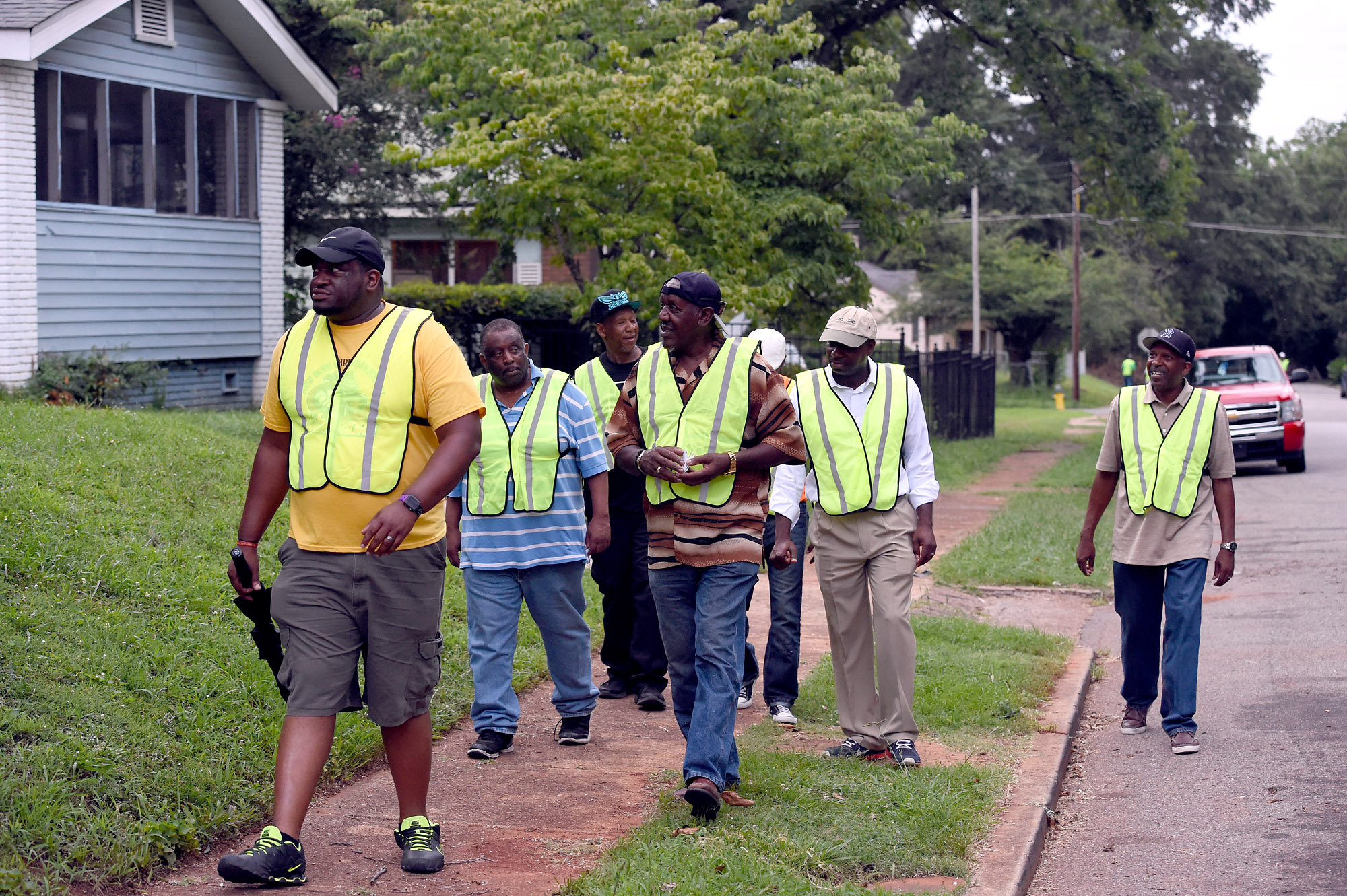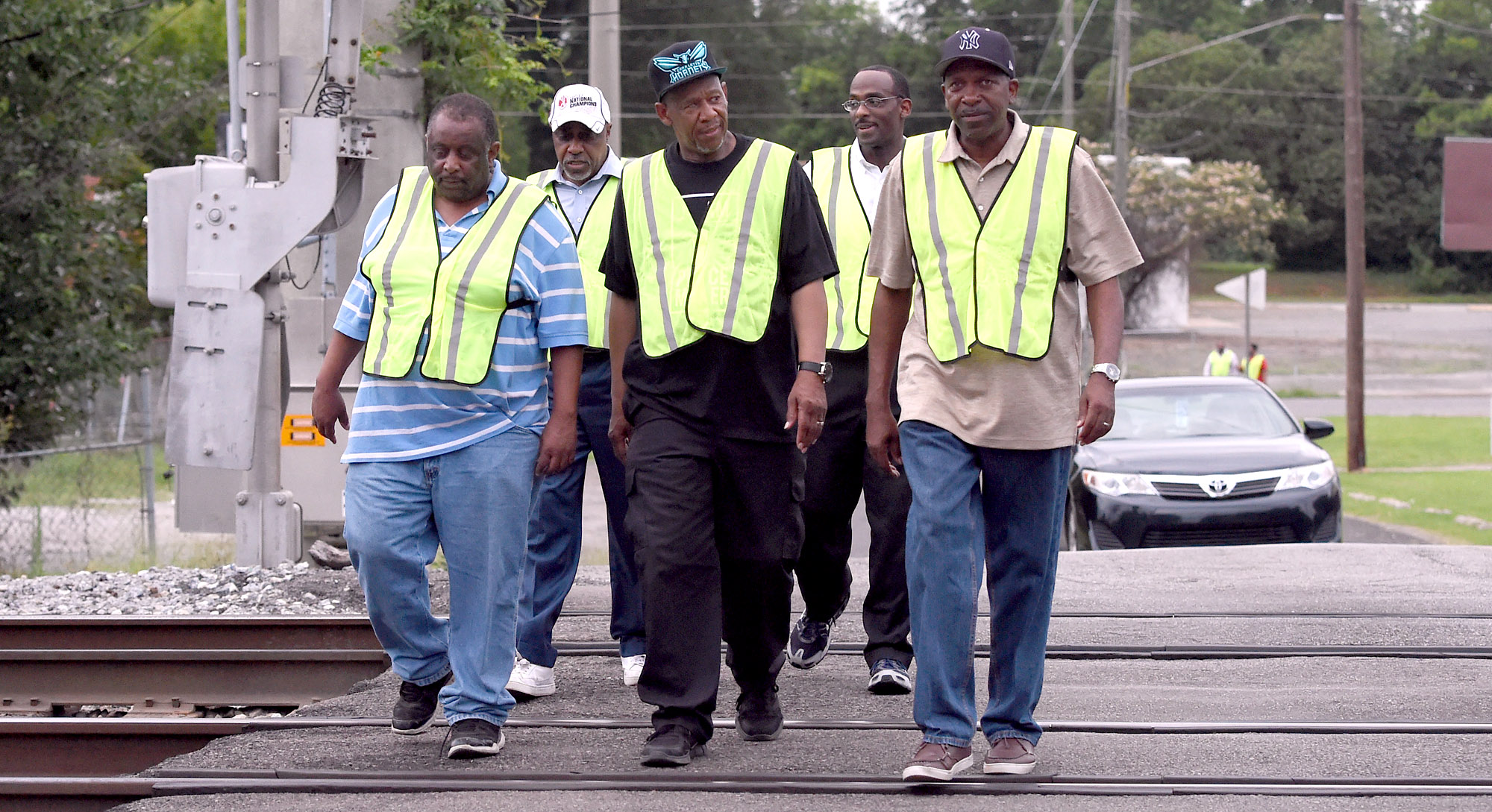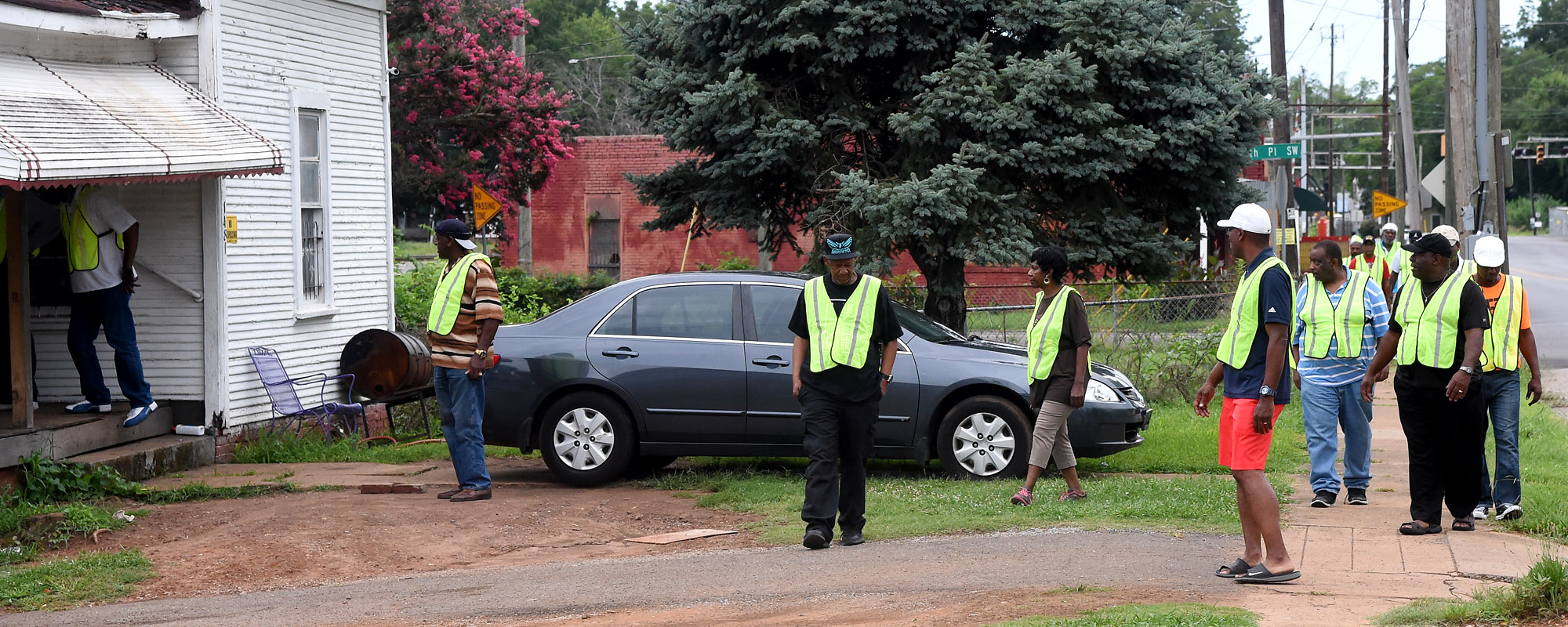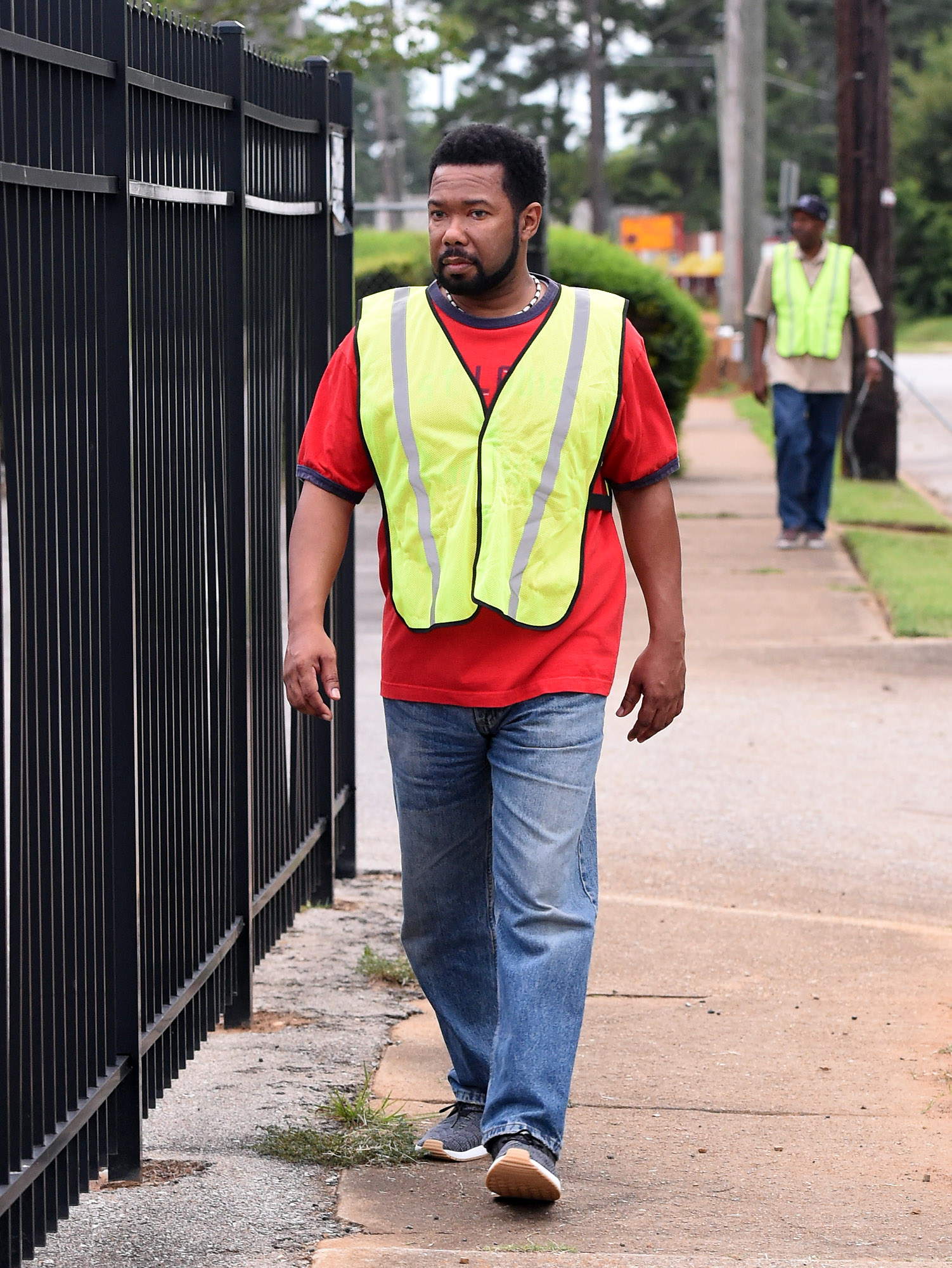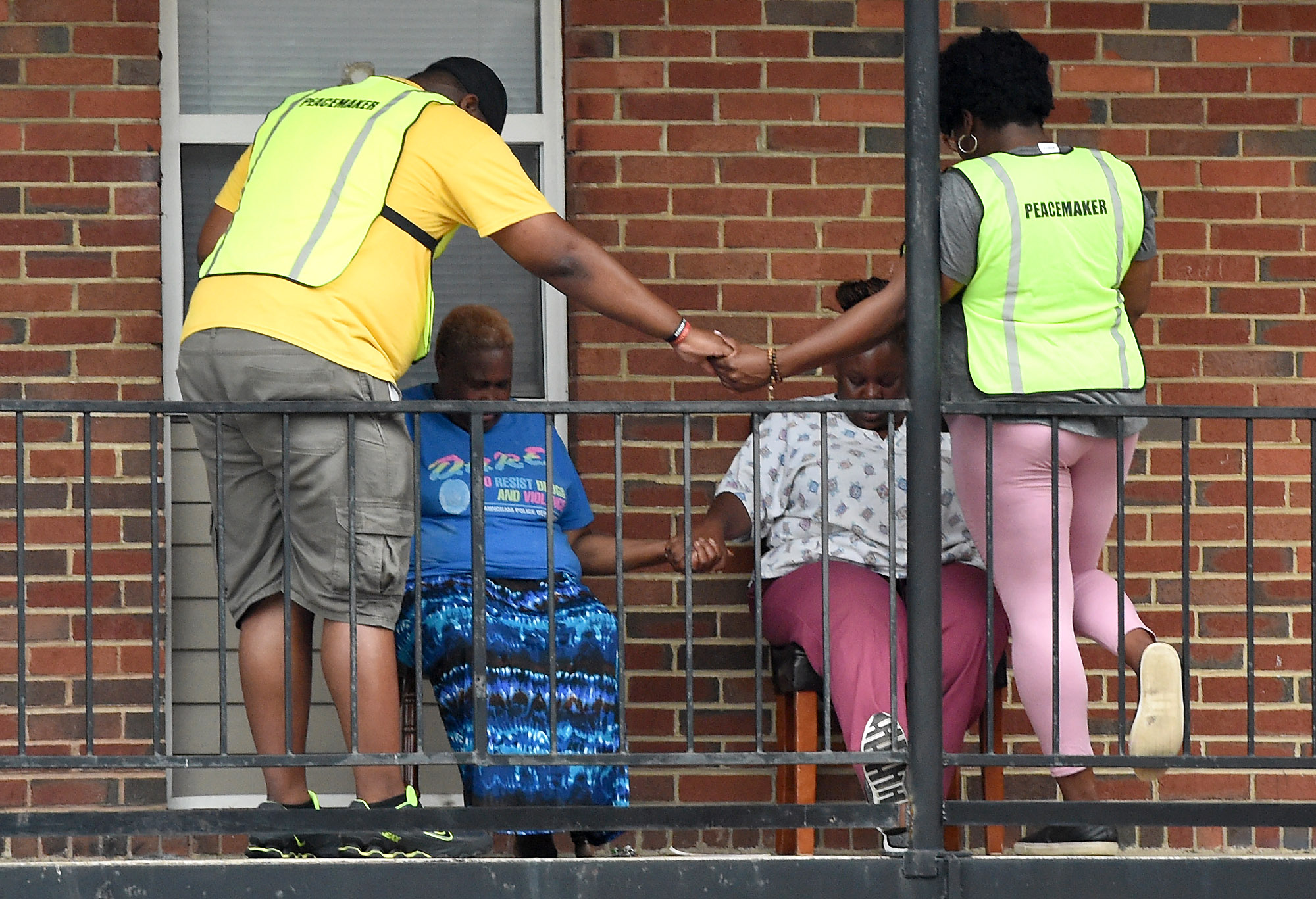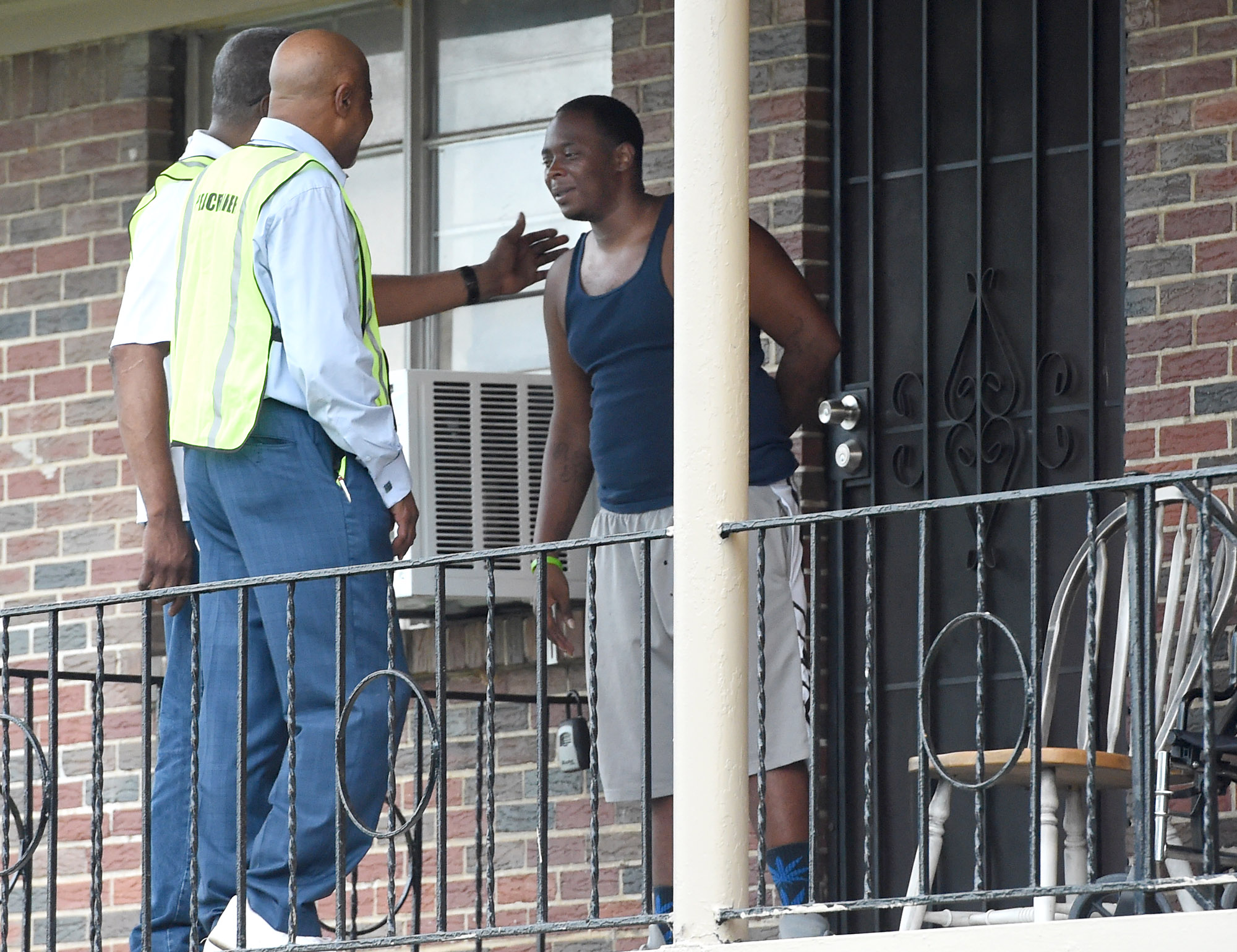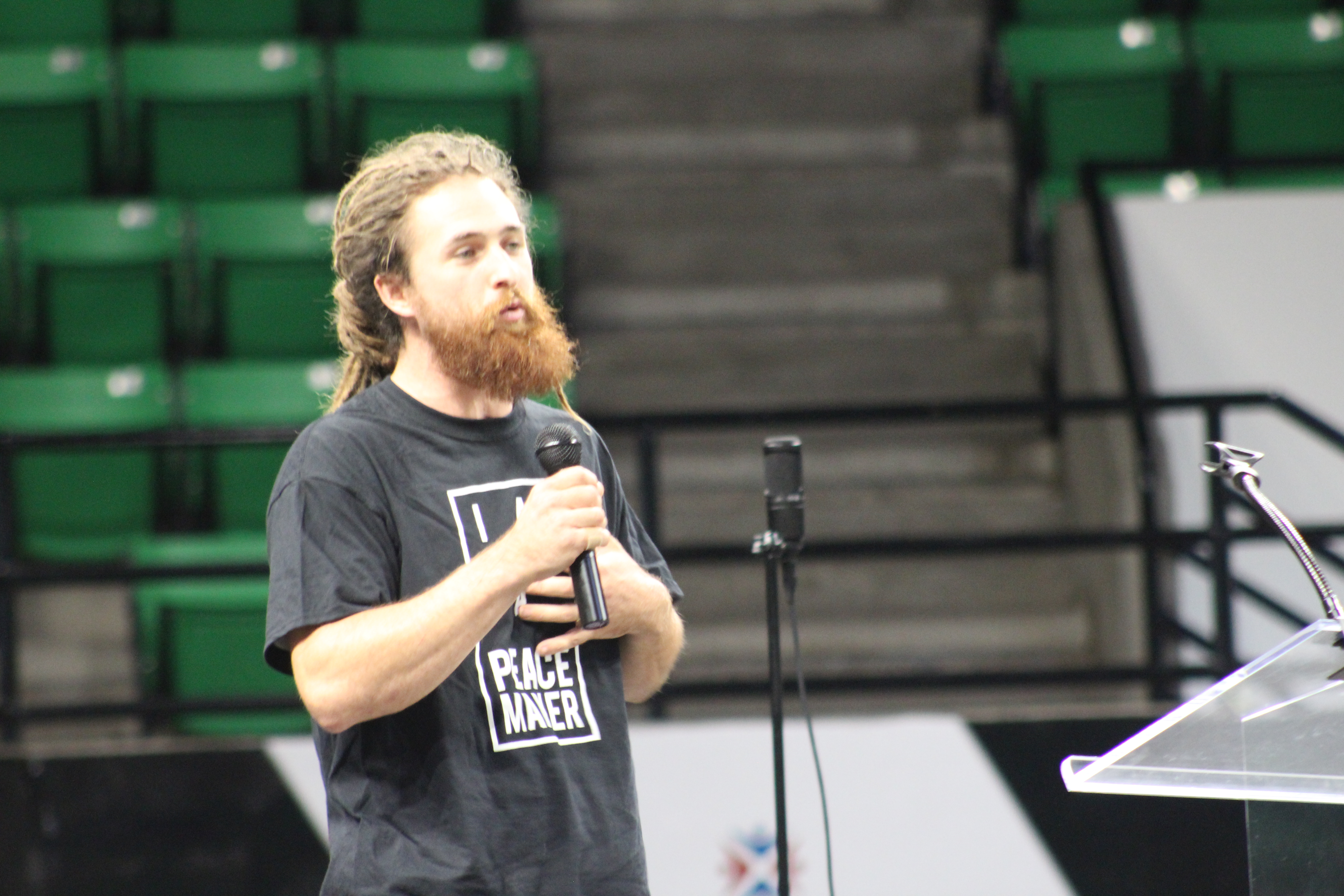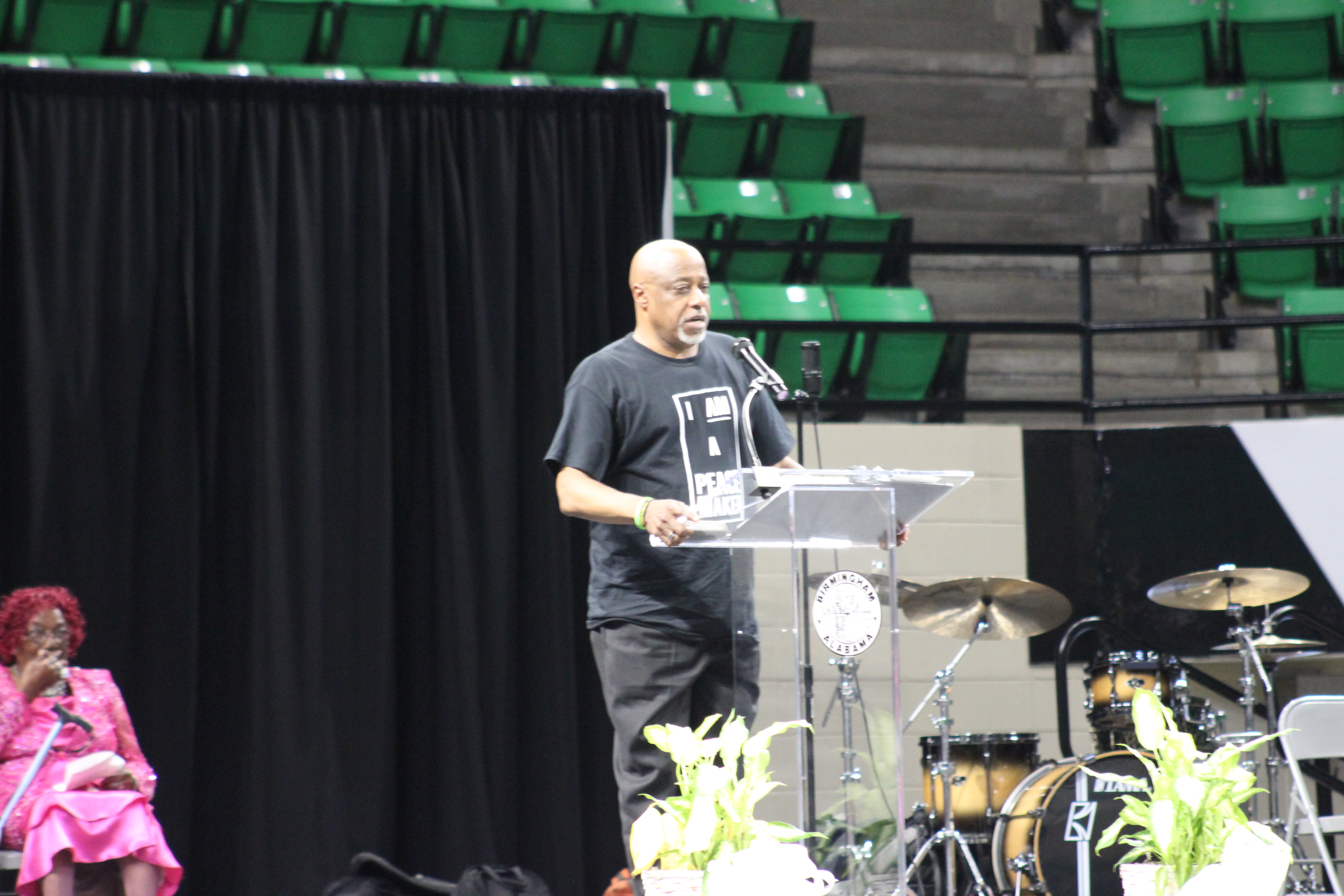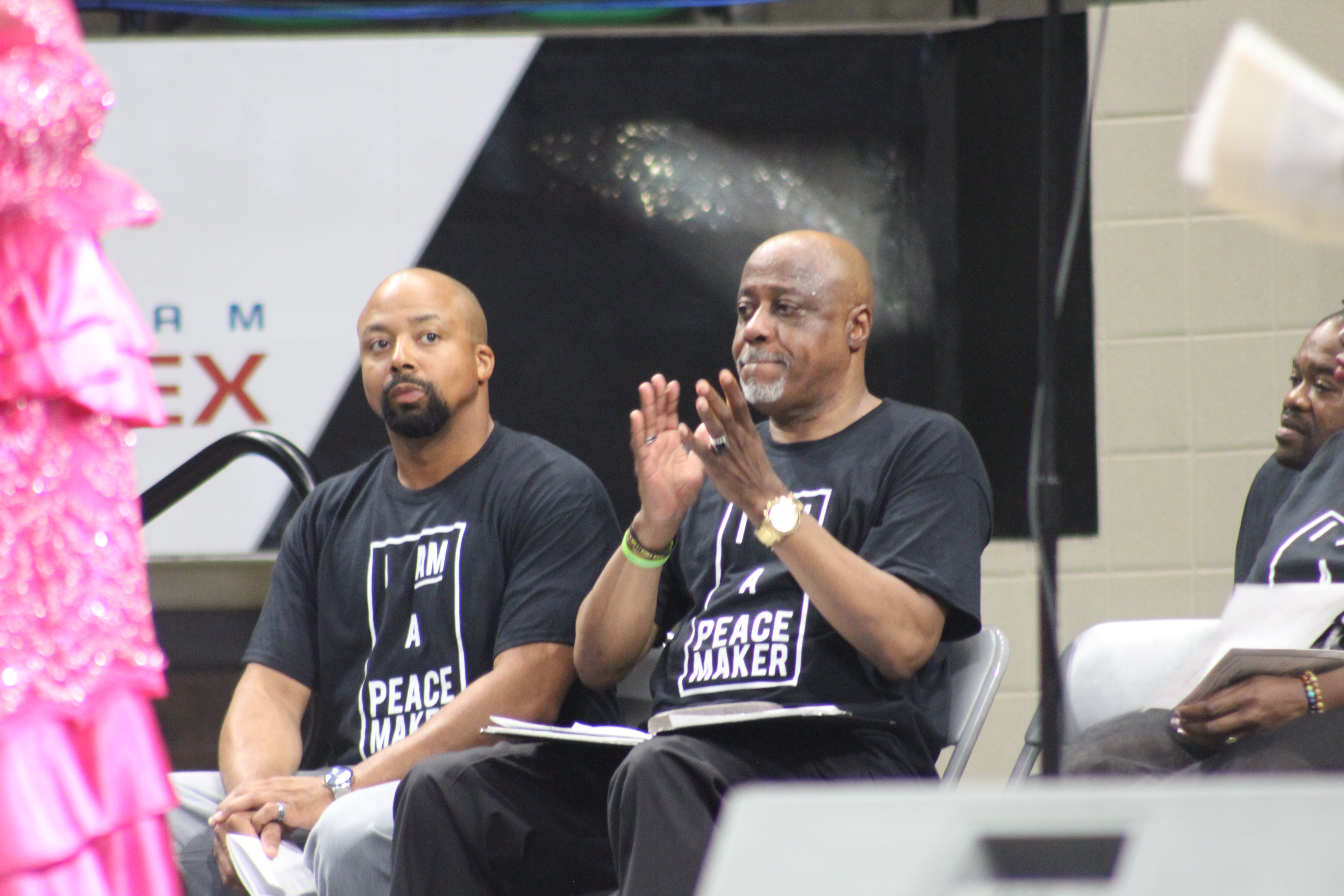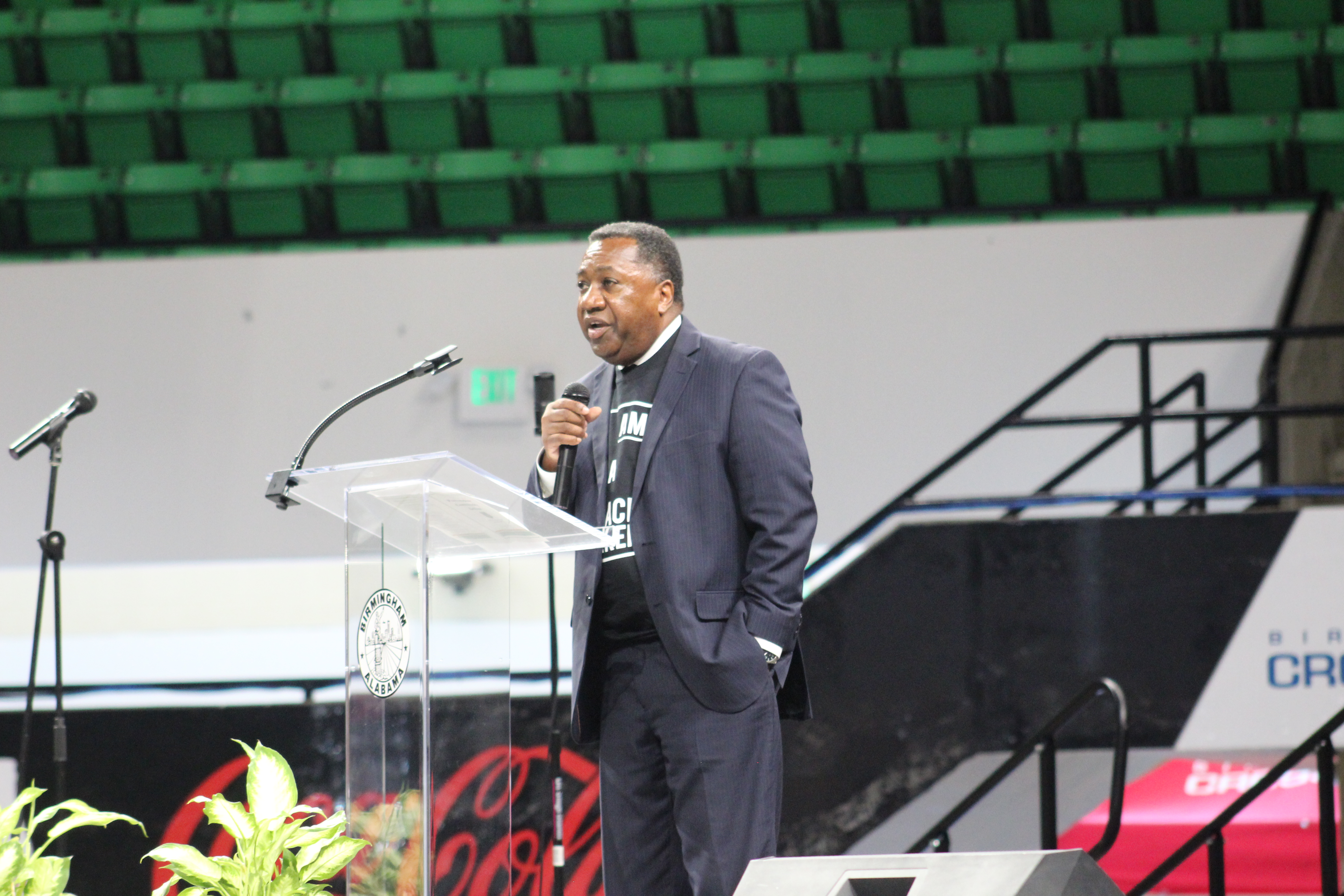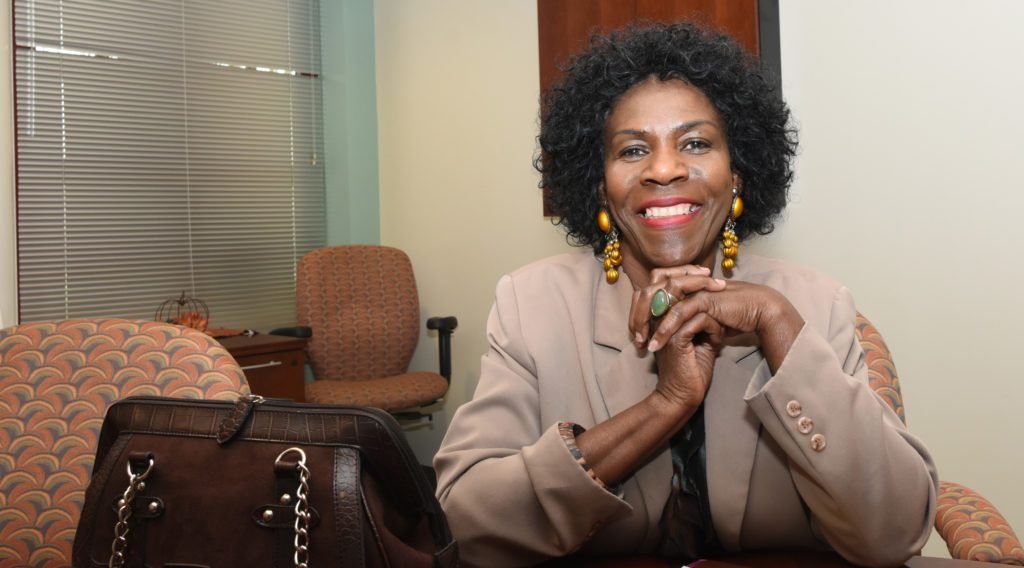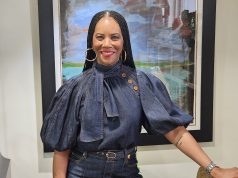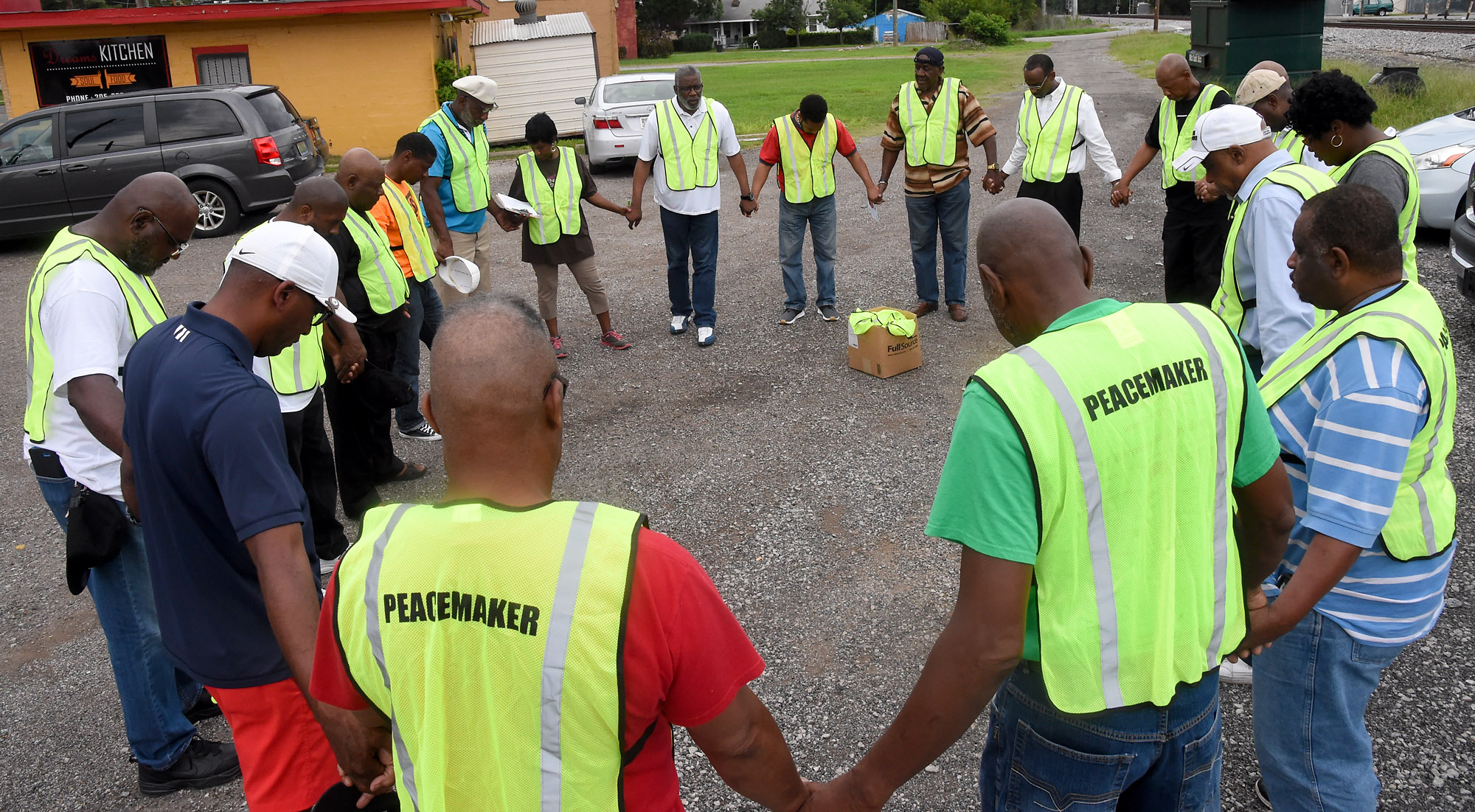
By Ariel Worthy
The Birmingham Times
Fifty-one names were read—each a victim of a homicide in Birmingham through the first six months of the year.
That was before a 16-year-old girl was killed this week in a drive-by shooting in Birmingham, according to police. Birmingham City Schools confirmed the victim was Arrielle Lashawn Parker-Jefferies, a rising senior at Wenonah High School.
In a statement the school system said, “As a community, we must continue to come together to address violence against our youth. We must also remain steadfast and committed to finding positive solutions to address and end gun violence.”
That’s what brought together faith, city and civic leaders during a recent rally.
As the 51 names were called out, most of the residents gathered in West Birmingham’s Bill Harris Arena remained silent with eyes closed. Some stood in prayer. Some cried. All in attendance were present for the same reason: peace in Birmingham and an end to the homicides.
The Birmingham Peacemakers, under Faith in Action Alabama, hosted the End Gun Violence in Birmingham rally in mid June. Two weeks later they gathered again. This time the venue was different. They took to the streets of Birmingham.
Night Walks
On Monday, July 2, nearly two dozen clergy and supporters assembled to walk streets on the city’s west side, knocking on doors, praying and talking with members of the community.
The Birmingham Peacemakers—a movement that calls the faith community together to respond to violence in Birmingham—take their message straight into the neighborhoods. Members of the Peacemakers began as a group in West Birmingham, with pastors from New Hope Baptist Church, Greater Shiloh Baptist Church, Sixth Avenue Baptist Church, Church Without Walls, and More Than Conquerors as members. In January, they began to walk through neighborhoods, meeting residents and listening to their concerns.
Many churches are expanding their ministries now more than ever, and the Peacemakers are a prime example.
“It’s important to be out here because these are our neighborhoods,” said John Cantelow III, senior pastor of Sixth Avenue Baptist Church, during a recent Monday evening walk in West End. “We just want to love on our people. We want to listen to them. We want to learn from them. We want to see how we can help. We want to let them know we are an available source of help. We are right here if they need us.”
One resident the ministers reached was 29-year-old Edward Chapman, who said he was happy for the visit.
“It means a lot,” Chapman said. “Some days I wake up stressful, and when they come through we talk about what stresses me out and all that, and it relieves pressure off me.”
Members of the group even went to pick up Chapman’s mother from Princeton Baptist Medical Center: “They came with a van, put her in the wheelchair, and brought her back home. I really appreciated it.”
Not Going Anywhere
Initially, the Peacemakers weren’t well received, said Dr. Gregory Clarke, co-chair of the Birmingham Peacemakers and pastor of New Hope Baptist Church.
“We were going to people’s houses at 8 p.m., and we walked [until] 10 p.m.,” Clarke said. “We met resistance initially, but we kept walking.”
After about month, some in the community saw that the ministers and supporters “weren’t going anywhere” and began to accept them, Clarke said.
The walks began in January 2018, and “by the end of February, we changed our hours … to 7 p.m. to 9 p.m. and got a better reception,” he said, adding that they even expanded the outreach by adding some Sunday nights.
The walk began on 3rd Avenue West and continued for more than 20 blocks, with pastors meeting residents along the way. Clarke said neighborhood leaders, such as the West End Community’s Evanne Gibson, reported that some drug transactions and the volume of crime have been reduced.
“There are not as many people hanging around, and people are cleaning up the area,” Clarke said. “I’m ecstatic about it.”
Seeing Peacemakers in her neighborhood means people care, said Gibson, who is community president of West End and president of the Germania Park Neighborhood Association.
“We have so many things going on in our community and so much violence,” she said. “To have the faith community come out and show love feels good.”
Partnering With The City
When the Peacemakers held the End Gun Violence in Birmingham rally at Bill Harris Arena, Gibson was there. She asked Birmingham Mayor Randall Woodfin, “Will the city of Birmingham commit to implementing a proven anti-gun-violence strategy in collaboration with the community of Faith in Action [Alabama] and the Peacemakers?”
The mayor’s response: “Absolutely, yes.”
“We’ve all have been touched by gun violence in this city,” Woodfin said. “We need to get to this point. The conversations we’ve been having are necessary. The city stands behind the Peacemakers and Faith in Action [Alabama]. … People deserve to go wherever they have to go without the fear of losing their lives.”
Clarke said the city’s partnership is welcomed.
“We’re committed to doing all we can to help the city of Birmingham,” he said. “We’re committed to doing all we can do as a faith community to make that happen.”
In December 2017, Clarke attended a Faith in Action Alabama seminar, where he heard a talk about how the faith community can handle violence.
Faith in Action Alabama works to make change and address systemic racism “through faith-based community organizing to create pathways of opportunity for all Alabamians.”
“I left the seminar wondering, ‘What can our community do?’” Clarke said. “When the statistics hit for the number of murders in Birmingham, it was overwhelming. … I kept seeing teenagers [among the dead], and I called the director of Faith in Action and asked, ‘What if I can get some pastors together and address issues like that?’”
In January 2018, Clarke sent letters to area pastors: “My belief was that if we can’t affect the entire state of Alabama, we ought to be able to affect the communities we’re in.”
He made phone calls, sent emails to pastors of different denominations and races in Birmingham’s western area.
“We started meeting and talking in January, and from there we started looking at action steps,” Clarke said.
Night walks were a good way to get to know the community, he said.
“We met with the neighborhood president, [Gibson], and asked which area needed the most help,” he said. “She told us the street that needed the most help, and we worked that street.”
Larry Moultrie, assistant to the pastor at New Hope Baptist Church, said the night walks “show we’re leaving stained glass windows, pastors are leaving the pulpits [and] coming back to the community to show the people that we want to listen… learn from them and we want to love on them. That’s our objective and most of all help try to combat so much gun violence.”
Times staff writer Barnett Wright contributed to this article.



